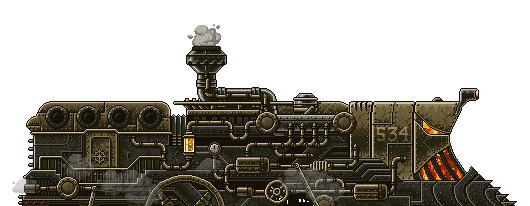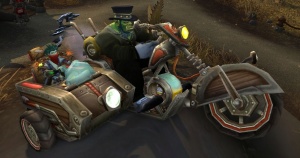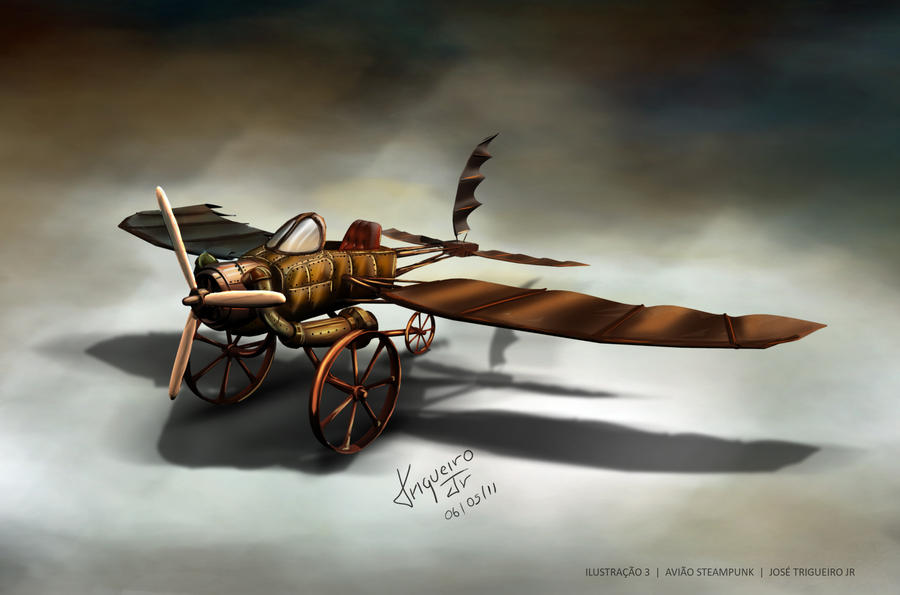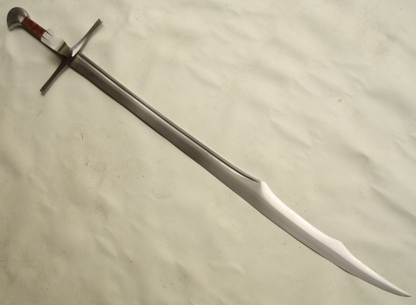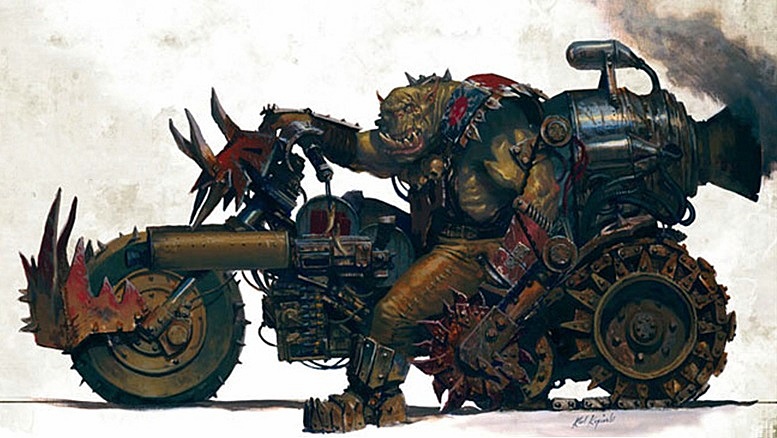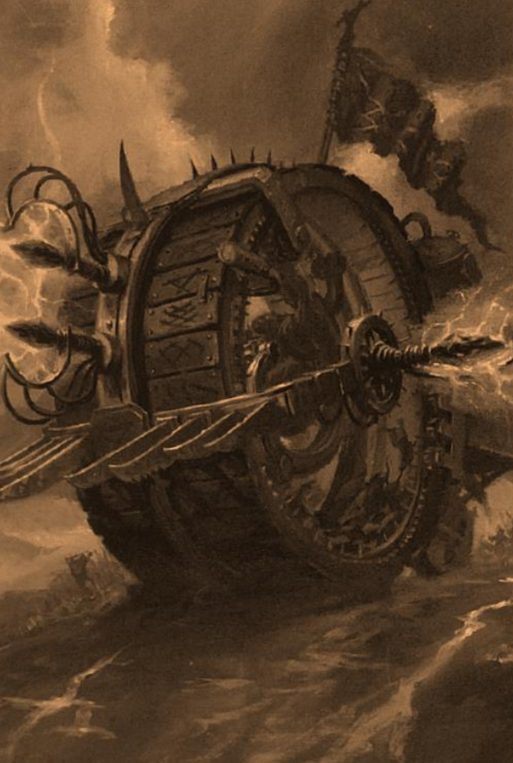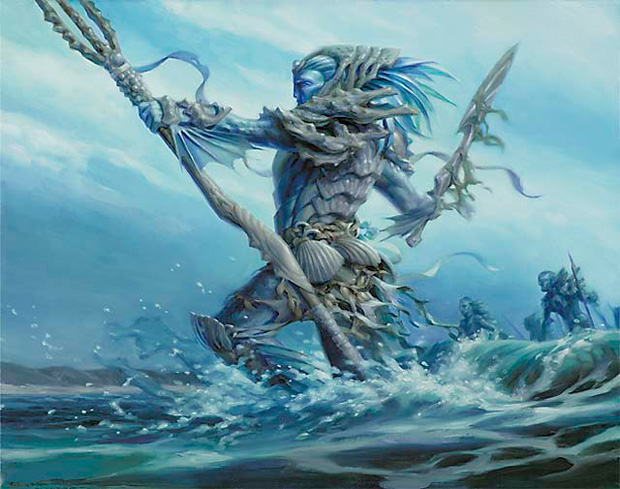Name of Nation: Etresna, the Enlightened Realm

Government: Enlightened Despotism - ruled by a monarch with great power, the governing principles of the state stretch back for eons, each Raijen or Reijen - the female or male rulers of the nation, is chosen by an elected council of ostensibly the wisest minds in the nation. The system has worked well thus far, the scholarly nature of much of the elite leading to a burgeoning technological paradise. The state pours much of its budget into the sciences and into engineering, determined to maintain its technological lead in the world.
[url=http://]Map of Etresna[/url]

Positioned on the eastern coast of the Narrevian continent, the populous nation of Etresna benefits from the significant rainfal brought by the equatorial westerlies and summer monsoons, the northern section of the nation playing host to a significant rainforest, and the heavy rainfall facilitating widespread rice cultivation in the central regions. Much of the agricultural industry of Etresna is managed by the central state in the interest of maximum efficiency, with the remnants of the Lowlands’ former inhabitants working as tax free, almost independent farmers on vast rice plantations in the north, and even more vast wheat fields on the prairies in the nation’s center. Much of the large population is situated along the coast, the vast and numerous rivers within the nation, in the massive mountains, or the foothills of those mountains where water pools and collects from mountain runoff. Population is concentrated heavily in the nation’s major urban centers, with much of the countryside either all but uninhabited or devoted to the vast agricultural plantations that feed the large urban centers and much of the world beyond. To some extent, the mountains are an exception to this rule, with much of their population distributed widely across the expanse, in mining towns or fortified mountain redoubts. The people of the mountains are responsible for much of the nation’s mining industry, the large and imposing natural defensive barrier doubling as a cornucopia of natural resources. Industrial production is primarily centered in the cities.
Dramatis Personae:
Anukadi “Anu” Firulkh Dashyrr: The current reigning Raijen of the Realm, elected thirty years ago by the grand council. Before her election, Anu was a distinguished civil engineer and public servant, responsible for overseeing the implementation of a modern electrical grid in the Realm’s southern coastal cities. Under her reign, the Realm has seen vast investment in the sciences and in public works, but sometimes at the expense of lower military investment, the Raijen putting faith in the Realm’s naval prowess and land forces to keep the Realm’s borders secure.
Azhis Dahtkah Fyrra: Occupying a position analogous to Commander in Chief of other armies, Azhis represents the strategic mind behind the Realm’s military forces. An enigmatic figure of dubious age, Azhis has nonetheless managed to keep the Realm out of the costly land wars the people wish to avoid. Investment in the navy and defensive capabilities on land has been her primary focus.
Species: Etremaden - A tall, grey skinned race, with similarities to the fae peoples of other nations, the Etremaden are nevertheless a distinct people from their long removed cousins. Males standing on average 6 feet, or 1.8 meters, and females standing but a few centimeters below. As with other fae peoples, they sport tapered ears, and some refer to them as ‘dark elves’ - a term the Etremaden themselves are none too fond of. Divergent from the usual strain of intelligent bipedal peoples that dominate the planet, the Etremaden are still humanoid, but with some unquantifiable sense of being ‘off’ to outsiders, this is far more prevalent and pronounced among the mountain dwellers. Unlike other humanoid species, their musculature between the sexes is considerably more equal, with both sexes sporting muscle mass nearly identical to each other.
Ancient records indicate the Etremaden originated in the same mountains from which their nation sprang, the people from which they came lost to history. The mountains of the Realm are host to a vast font of magical energy, but wholly different from that of the norm. Steeped in Eldritch influence, a strain of magic made infamous by the Dark Empire of old, one the Etremaden themselves were crucial in the destruction of, the mountains slowly changed their inhabitants, giving rise to the modern day Etremaden. This origin, coupled with their emnity with Kratoria, has lent them ill repute in many regions of the world, those dominated by old magic and old orders, who see the Etremaden and their origin as corruptions, dark blights upon the magical order of the world.
Population: 273 million, still rapidly growing. The realm is still nowhere near its potential, the vast depopulation of the land in the mid 1400s still has a marked influence on the population size to this day.
Culture: For much of their earlier history a relatively inward looking people after their conquest of the lowlands, and repulsion of the Kratorian Empire’s attempt at annexation, the people of Etresna have cultivated a simultaneously scholarly and militaristic culutre, idealizing the warrior-scholar of old. The nation is heavily armed, with around 66% of the population owning rifles, pistols, machine guns, and other ordnance - a holdover from their history of constant warfare and citizen military participation. At the same time, there is a love of the arts, the sciences, engineering, and philosophy, and it is common sight to find a military artistic exhibition, showcasing the works of local military personnel, sponsored by the general or some affluent individiual, and the comparatively small army is frequently seen assisting in public works and engineering projects. There is much distaste for the state militarism prevalent among many other nations - Among their own people, there is a strong sense of egalitarianism among themselves - there are very few or no restrictions upon the rights of fellow Etremaden in regards to sex or other characteristics. Other peoples are generally judged on a case by case basis, and will usually be held to be ‘lesser’ until in some way proving themselves.
Economy: A global powerhouse, Etresna’s economy is heavily focused around a major service sector augmented by powerful manufacturing, fueled by vast raw material reserves in their mountainous nation, alongside the agricultural heartlands in the central plains and northern rice paddies. The nation has advanced leaps and bounds in many areas, and produces many excellent doctors, scientists, engineers, mathemeticians, others. This lends the economy a considerable service sector bent. Despite this, there are movements within to increase manufacturing prowess to compete with the global market, rather than merely supplying their own needs.
Despite its large population, Etresna is a net exporter of grains, shipping food abroad in great quantities - primarily and wheat - the centrally planned and overseen wheat prairies and the vast rice paddies of the northern river deltas providing frequent bumper crops with the advent of modern fertilizers and the mechanization of farming equipment. These agricultural lands are sparsely populated, with the predominant population being the remnants of the erstwhile inhabitants of the coastal lowlands, a people with a unique position within the realm. They live tax free, barely regulated at all beyond baseline codes of conduct, and in turn manage the realm’s agricultural engine, having recently been subsizied in a switch from pack animals and degenerate beasts of burden to an almost wholly mechanized farming system. Even so, engineering works are constantly underway to further expand the nation’s agricultural prowess.
Technology: For much of its history a technological powerhouse, Etresna has continued to lead the world in technological advancement, all of its cities sporting modern electrical grids and transportation hubs, with a sophisticated rail network linking every part of the country together. The military as well benefits from this technological lead, many warships outfitted with advanced targeting aparatuses, though much of their fleet is of older make, and not as modern as their grand fleet would indicate. On land - while their individual equipment is still focused around tried and true technology - the bolt action rifle, the revolver, and so on, these weapons are produced of high grade steel and can sustain higher cartridge pressures than those of most competing nations. And even so, there is constant pressure to innovate both in private arms companies, and governmental arsenals.
Air Force: The air force of the Realm is a mediocre force, all told. What planes they do have are small in number, but well maintained and are continuously upgraded and updated with the latest technology available. Primarily used in scouting, there have been limited investigations into the use of aircraft for offensive purposes as well, such as machine gunning infantry formations in pursuit operations.
History of the Realm
Rolls:
12 + 6: Territory - Your nation is magnificently sized, a premiere empire of the day. There are vast lands to go around.
20 - Tech: Your nation is the premier technological leader of the day. One of the earliest adopters if not the creator of industrialization and modern scientific research, your nation leads the world in technological advancement.
11 - Army Size: Your army is decently sized, and is maintained year-round.
17 + 3 - Economy: Your economy is world-class, and the nation is in the middle of an economic boom. You are seen as a land of opportunity. The nation can fund anything it wants, almost.
14 - Production: Your nation is somewhat majority industrial, with decent resource exploitation.
17 - Navy Size: Your navy is of respectable size, with a large merchant train and a large military portion.
7 - Airforce Size: You have a few biplanes.
17 - 5 - Magic: Your nation is above average. Nothing exceptional, but you stay ahead of the chaff and other low liers. You may be advanced in theory but lack the means or structure to implement - or you may have ample capacity for production, and limited sophistication in doing so, or anything else.
1 + 1 - Mobilization: It takes the good part of a year to mobilize.
Traits:
A Nation of Learning: Tracing back to its ancient roots, the Realm, its people, culture, and even most of the cultural elite, have embraced science, the arts, and learning in general. Today, as it has been for millenia, the Realm devotes vast sums of money to research and development, to sponsoring the arts, schools of engineering, and more. The Realm is the technological leader of the world, and is determined to maintain their lead at all costs. Etremaden sciences - hard and soft, engineering, arts, and more are renowned. The nation advances technologically faster than its rivals, their prowess with technology a match for the formidable arcane might of the empires of Kratoria and Anvegad.
Masters of Artillery: For centuries the cornerstone of the Realm’s military might, the artillery has continued to play a crucial role in the Realm’s land forces. Much of the military infrastructure on land is devoted to training, supplying, and equipping the nation’s artillery corps, Etremaden engineering producing the finest guns in the world, and their schools producing the finest gunners. However, this comes at the expense of much of the rest of the army, the regular infantry representing a far smaller proportion of the army than their contemporaries, and militias - decently trained but not full time professionals - make up the bulk of Etresna’s foot soldiers.
Honor Code: The Etremaden are known for almost fanatical fervor in combat, rarely if ever fleeing, surrendering only if all hope is lost and resistance is futile. To surrender when one could have fought on and forced the foe to pay for their victory in blood is a great shame - to surrender without fighting at all is the greatest of shames. The Realm’s soldiers will retreat, given the order, but a foe rushing their trenches will rarely find their forces fleeing, and even more rarely will they surrender. A platoon of soldiers, lost within enemy territory, is expected to fight their way back to friendly lines, or to inflict as much damage as possible - unless such an attempt would result in naught but their own deaths. This culture of honorable surrender and its intricacies are often lost on foreigners, who know only of the terrible treatment often suffered by prisoners taken in what the Etremaden deem dishonorable circumstances, and many foreign soldiers too will fight to the death to avoid capture.
Armed Populace: The people of the realm, the non-uniformed, arms-bearing citizen militia, make up the vast bulk of the Realm’s ground forces. Well over half of the population are well armed, with rifles, pistols, and even machine guns, and do not shy away from using or threatening to use them. An invader of the realm would find a rifle behind every blade of grass, every tree trunk, a hundred fifty million barrels aimed in their direction - but the same is true of the government. Widespread public outcry, opposition to an unpopular government policy, or anything else will almost certainly result in the government backing down. The Raijen is hard pressed to lead her nation into a war it no longer desires, unless the people can be made to seek war once more.
Infamous Origins: Dark mountain stuff, will finish later. Established magic people dislike them.
:
Foreign Relations:

Government: Enlightened Despotism - ruled by a monarch with great power, the governing principles of the state stretch back for eons, each Raijen or Reijen - the female or male rulers of the nation, is chosen by an elected council of ostensibly the wisest minds in the nation. The system has worked well thus far, the scholarly nature of much of the elite leading to a burgeoning technological paradise. The state pours much of its budget into the sciences and into engineering, determined to maintain its technological lead in the world.
[url=http://]Map of Etresna[/url]

Positioned on the eastern coast of the Narrevian continent, the populous nation of Etresna benefits from the significant rainfal brought by the equatorial westerlies and summer monsoons, the northern section of the nation playing host to a significant rainforest, and the heavy rainfall facilitating widespread rice cultivation in the central regions. Much of the agricultural industry of Etresna is managed by the central state in the interest of maximum efficiency, with the remnants of the Lowlands’ former inhabitants working as tax free, almost independent farmers on vast rice plantations in the north, and even more vast wheat fields on the prairies in the nation’s center. Much of the large population is situated along the coast, the vast and numerous rivers within the nation, in the massive mountains, or the foothills of those mountains where water pools and collects from mountain runoff. Population is concentrated heavily in the nation’s major urban centers, with much of the countryside either all but uninhabited or devoted to the vast agricultural plantations that feed the large urban centers and much of the world beyond. To some extent, the mountains are an exception to this rule, with much of their population distributed widely across the expanse, in mining towns or fortified mountain redoubts. The people of the mountains are responsible for much of the nation’s mining industry, the large and imposing natural defensive barrier doubling as a cornucopia of natural resources. Industrial production is primarily centered in the cities.
Dramatis Personae:
Anukadi “Anu” Firulkh Dashyrr: The current reigning Raijen of the Realm, elected thirty years ago by the grand council. Before her election, Anu was a distinguished civil engineer and public servant, responsible for overseeing the implementation of a modern electrical grid in the Realm’s southern coastal cities. Under her reign, the Realm has seen vast investment in the sciences and in public works, but sometimes at the expense of lower military investment, the Raijen putting faith in the Realm’s naval prowess and land forces to keep the Realm’s borders secure.
Azhis Dahtkah Fyrra: Occupying a position analogous to Commander in Chief of other armies, Azhis represents the strategic mind behind the Realm’s military forces. An enigmatic figure of dubious age, Azhis has nonetheless managed to keep the Realm out of the costly land wars the people wish to avoid. Investment in the navy and defensive capabilities on land has been her primary focus.
Species: Etremaden - A tall, grey skinned race, with similarities to the fae peoples of other nations, the Etremaden are nevertheless a distinct people from their long removed cousins. Males standing on average 6 feet, or 1.8 meters, and females standing but a few centimeters below. As with other fae peoples, they sport tapered ears, and some refer to them as ‘dark elves’ - a term the Etremaden themselves are none too fond of. Divergent from the usual strain of intelligent bipedal peoples that dominate the planet, the Etremaden are still humanoid, but with some unquantifiable sense of being ‘off’ to outsiders, this is far more prevalent and pronounced among the mountain dwellers. Unlike other humanoid species, their musculature between the sexes is considerably more equal, with both sexes sporting muscle mass nearly identical to each other.
Ancient records indicate the Etremaden originated in the same mountains from which their nation sprang, the people from which they came lost to history. The mountains of the Realm are host to a vast font of magical energy, but wholly different from that of the norm. Steeped in Eldritch influence, a strain of magic made infamous by the Dark Empire of old, one the Etremaden themselves were crucial in the destruction of, the mountains slowly changed their inhabitants, giving rise to the modern day Etremaden. This origin, coupled with their emnity with Kratoria, has lent them ill repute in many regions of the world, those dominated by old magic and old orders, who see the Etremaden and their origin as corruptions, dark blights upon the magical order of the world.
Population: 273 million, still rapidly growing. The realm is still nowhere near its potential, the vast depopulation of the land in the mid 1400s still has a marked influence on the population size to this day.
Culture: For much of their earlier history a relatively inward looking people after their conquest of the lowlands, and repulsion of the Kratorian Empire’s attempt at annexation, the people of Etresna have cultivated a simultaneously scholarly and militaristic culutre, idealizing the warrior-scholar of old. The nation is heavily armed, with around 66% of the population owning rifles, pistols, machine guns, and other ordnance - a holdover from their history of constant warfare and citizen military participation. At the same time, there is a love of the arts, the sciences, engineering, and philosophy, and it is common sight to find a military artistic exhibition, showcasing the works of local military personnel, sponsored by the general or some affluent individiual, and the comparatively small army is frequently seen assisting in public works and engineering projects. There is much distaste for the state militarism prevalent among many other nations - Among their own people, there is a strong sense of egalitarianism among themselves - there are very few or no restrictions upon the rights of fellow Etremaden in regards to sex or other characteristics. Other peoples are generally judged on a case by case basis, and will usually be held to be ‘lesser’ until in some way proving themselves.
Economy: A global powerhouse, Etresna’s economy is heavily focused around a major service sector augmented by powerful manufacturing, fueled by vast raw material reserves in their mountainous nation, alongside the agricultural heartlands in the central plains and northern rice paddies. The nation has advanced leaps and bounds in many areas, and produces many excellent doctors, scientists, engineers, mathemeticians, others. This lends the economy a considerable service sector bent. Despite this, there are movements within to increase manufacturing prowess to compete with the global market, rather than merely supplying their own needs.
Despite its large population, Etresna is a net exporter of grains, shipping food abroad in great quantities - primarily and wheat - the centrally planned and overseen wheat prairies and the vast rice paddies of the northern river deltas providing frequent bumper crops with the advent of modern fertilizers and the mechanization of farming equipment. These agricultural lands are sparsely populated, with the predominant population being the remnants of the erstwhile inhabitants of the coastal lowlands, a people with a unique position within the realm. They live tax free, barely regulated at all beyond baseline codes of conduct, and in turn manage the realm’s agricultural engine, having recently been subsizied in a switch from pack animals and degenerate beasts of burden to an almost wholly mechanized farming system. Even so, engineering works are constantly underway to further expand the nation’s agricultural prowess.
Technology: For much of its history a technological powerhouse, Etresna has continued to lead the world in technological advancement, all of its cities sporting modern electrical grids and transportation hubs, with a sophisticated rail network linking every part of the country together. The military as well benefits from this technological lead, many warships outfitted with advanced targeting aparatuses, though much of their fleet is of older make, and not as modern as their grand fleet would indicate. On land - while their individual equipment is still focused around tried and true technology - the bolt action rifle, the revolver, and so on, these weapons are produced of high grade steel and can sustain higher cartridge pressures than those of most competing nations. And even so, there is constant pressure to innovate both in private arms companies, and governmental arsenals.
Army: The Matichikyrra Vihhrytt’aten, the Many Children of War, serve as the armed forces of the Realm. Not a vast organization by any means, the army is standing year round and numbers about a hundred and fifty thousand professional, excellently trained and equipped troops, with a further two hundred thousand as registered reserve forces that can be called up at a moment’s notice. The vast majority of the realm’s standing army is dedicated to their non-infantry roles - artillery and other such engines of war. Much of the realm’s military strength comes from registered militias, organized at the local government level but trained along standards issued by the standing military. These militias, though lacking in any heavy ordnance, carry plentiful small arms and total almost half the population of the realm - but calling up such militias is a laborious and extremely time-consuming process fraught with political landmines. The physiology of the Etremaden is different from normal humanity, with male and female musculature highly similar, and as such their military is roughly 48% female, who serve full responsibility in frontline and support roles. Indeed, one of the youngest but most gifted high level commanders of the army is a woman over sixty years of age, who despite relatively limited Etremaden involvement, distinguished herself in the Kratorian-Rotteburg war.
The army, should it truly be pressed, and the people willing, can draw on the large population of the Realm. However, conscription is a slow process, much of the population and political class keen on avoiding costly land wars abroad - having suffered costly, grinding wars or utter catastrophe in past attempts, and prefer to exert influence through economy and the powerful navy. However, the laws and structure are in place, and as such, should the nation ever find itself in a true war of attrition in defense of the realm or their allies, there will be no shortage of warm bodies - though gathering them together will take considerable time.
Notable Figures
Firahl Kyni Panarre: The foremost field commander and tactical mind of the Realm’s land forces, Firahl does not hold supreme command, but does hold considerable localized command authority, and more importantly - great influence with the ruling classes and her superior. Considered by many to be an expert in mountain warfare - unsurprising considering the terrain of the nation - she sits at sixty two years of age, with active duty service from the age of twenty.
The Realm’s small army is equipped with excellent, high quality weaponry:
One of their own domestic designs, the Realm’s standard issue service rifle is the Atassidaiir Vyye 1903 - Repeat Firearm Model 1903 - a well crafted weapon tested to high tolerances, manufactured to exacting specifications, and tested by hand. Feeding from a fifteen round internal magazine, the weapon is capable of surprising rates of fire for a bolt action weapon when placed in the hands of the well trained Etremaden army. Chambered for the .338 Kasanfirre round, designed with Orcish soldiers in mind as well as the infantry of other nations, the Realm’s main service rifle fires a potent .338 round capable of propelling a 250 grain projectile at 800 m/s, a round more than capable downing even the orcs who might charge through less powerful ordnance.
In addition, all rank and file soldiers as well as the officers are issued the Suinnadaiir Vyye 1901: A sturdy six shot revolver chambered in a potent and recently developed .357 caliber cartridge. Capable of propelling its 158 grain load at speeds exceeding 1200 feet per second, it is a potent close quarters weapon.
The army is well known for their liberal and devastating use of artillery, their original conquest of the lowlands dating back almost half a millenium owed to their early mastery of artillery tactics. Since then, they have remained a foremost player in the field of artillery, fielding a wide array of formidable pieces, including the fearsome 430mm Dunikeyrr Heridda Vyye 1906 - the Siege Cannon Model 1906 (nicknamed “Ved Venkam” or “Fat Vemkan” by its crews), or the 150mm Evini Heridda Vyye 1908 - Field Cannon Model 1908 among others.
Additionally, centuries of mountain warfare and individualist combat doctrine have lent their infantry a less rigid bent. Even in the black powder era, large swathes of their army fought as loose skirmishers, taking cover behind rocks and trees and aiming independently with accurate rifles. With the advent of modern arms, this tactic has been adopted wholesale, and the full army is organized into small squads and platoons, given a general directive rather than organized and commanded as a single cohesive unit.
Pictured below: Soldier of the 43rd Shock Battalion

The army, should it truly be pressed, and the people willing, can draw on the large population of the Realm. However, conscription is a slow process, much of the population and political class keen on avoiding costly land wars abroad - having suffered costly, grinding wars or utter catastrophe in past attempts, and prefer to exert influence through economy and the powerful navy. However, the laws and structure are in place, and as such, should the nation ever find itself in a true war of attrition in defense of the realm or their allies, there will be no shortage of warm bodies - though gathering them together will take considerable time.
Notable Figures
Firahl Kyni Panarre: The foremost field commander and tactical mind of the Realm’s land forces, Firahl does not hold supreme command, but does hold considerable localized command authority, and more importantly - great influence with the ruling classes and her superior. Considered by many to be an expert in mountain warfare - unsurprising considering the terrain of the nation - she sits at sixty two years of age, with active duty service from the age of twenty.
The Realm’s small army is equipped with excellent, high quality weaponry:
One of their own domestic designs, the Realm’s standard issue service rifle is the Atassidaiir Vyye 1903 - Repeat Firearm Model 1903 - a well crafted weapon tested to high tolerances, manufactured to exacting specifications, and tested by hand. Feeding from a fifteen round internal magazine, the weapon is capable of surprising rates of fire for a bolt action weapon when placed in the hands of the well trained Etremaden army. Chambered for the .338 Kasanfirre round, designed with Orcish soldiers in mind as well as the infantry of other nations, the Realm’s main service rifle fires a potent .338 round capable of propelling a 250 grain projectile at 800 m/s, a round more than capable downing even the orcs who might charge through less powerful ordnance.
In addition, all rank and file soldiers as well as the officers are issued the Suinnadaiir Vyye 1901: A sturdy six shot revolver chambered in a potent and recently developed .357 caliber cartridge. Capable of propelling its 158 grain load at speeds exceeding 1200 feet per second, it is a potent close quarters weapon.
The army is well known for their liberal and devastating use of artillery, their original conquest of the lowlands dating back almost half a millenium owed to their early mastery of artillery tactics. Since then, they have remained a foremost player in the field of artillery, fielding a wide array of formidable pieces, including the fearsome 430mm Dunikeyrr Heridda Vyye 1906 - the Siege Cannon Model 1906 (nicknamed “Ved Venkam” or “Fat Vemkan” by its crews), or the 150mm Evini Heridda Vyye 1908 - Field Cannon Model 1908 among others.
Additionally, centuries of mountain warfare and individualist combat doctrine have lent their infantry a less rigid bent. Even in the black powder era, large swathes of their army fought as loose skirmishers, taking cover behind rocks and trees and aiming independently with accurate rifles. With the advent of modern arms, this tactic has been adopted wholesale, and the full army is organized into small squads and platoons, given a general directive rather than organized and commanded as a single cohesive unit.
Pictured below: Soldier of the 43rd Shock Battalion

The navy historically has been a major strength of the coastal nation, and their navy and merchant marine are vast and exceedingly modern. While not the largest navy of the world, they are easily one of if not the most modern, each ship kept up to date with state of the art fire suppression systems and hydraulic loaders for the guns. The Etremaden navy is deployed differently than many of its contemporaries, with costly large scale fleet actions something the navy wishes to avoid. The pride of the Realm’s forces at sea are its Battlecruisers - different than those of many other nations, the Realm’s Battlecruisers are on average smaller, but armed to the teeth with a full bevy of naval ordnance. Organized into hunting packs alongside destroyers, cruisers, and support craft, the Battlecruisers’ role is to patrol the seas, savaging the commerce shipping and smaller scale military operations of enemy nations, and avoiding a pitched battle with larger ships of the line if at all possible. The role of fleet operations are delegated to the battleships and other vessels dedicated for the purpose.
Adafarry Daruhl Mazatsi: The supreme commander of the Realm’s great naval forces, Adafarry is a man who commands respect. The forces at his disposal are immense, while not the largest fleet in the world, the Realm boasts possibly the most modern, with many warships bearing powerful long range guns and advanced targeting systems - sophistication and accuracy unimaginable even a decade earlier.
The navy’s strength is divided between two main fleets, with numerous other smaller detachments stationed at their larger island territories. The overall fleet size sits at 273 surface vessels, with a submarine fleet some 80 strong.
Manen Matiduniss - Great Fleet: Total strength, 134 vessels
1st Battlegroup:
DME Yavinnd - The name of the flagship of the fleet, the Yavinnd is always a vessel unique in its design, almost always a fearsome warship with no equal on the seas. The current incarnation, weighing in at almost 62,000 long tons and bringing to bear fourteen 15 inch guns, is a monstrous floating behemoth of guns and armor.
DME Raijen Class Super Dreadnought - Raijen
DME Raijen Class Super Dreadnought - Kalikka
DME Takriss Class Super Dreadnought - Yekanii
DME Aktis Class Dreadnought - Aktis
DME Aktis Class Dreadnought - Yerissi
DME Aktis Class Dreadnought - Yakhille
12 light Cruisers, 21 destroyers
2nd Battlegroup:
DME Raijen Class Super Dreadnought - Vendavii
DME Raijen Class Super Dreadnought - Anuzha
DME Aktis Class Dreadnought - Tavul
DME Aktis Class Dreadnought - Yerama
DME Aktis Class Dreadnought - Tuvalai
DME Aktis Class Dreadnought - Iinama
6 light Cruisers, 8 destroyers
3rd Battlegroup:
DME Vassiyll Class Battlecruiser - Vassiyll
DME Asdull Class Battlecruiser - Xavund
DME Norii Class Battlecruiser - Norii
DME Valirr Class Heavy Cruiser - Furid
DME Kalin Class Heavy Cruiser - Dakuns
DME Kalin Class Heavy Cruiser - Kalin
5 light Cruisers, 17 destroyers
4th Battlegroup:
DME Davir Class Battlecruiser - Saken
DME Vassiyll Class Battlecruiser - Orillir
DME Vassiyll Class Battlecruiser - Likirri
DME Valirr Class Heavy Cruiser - Rikill
DME Korvil Class Heavy Cruiser - Urisi
DME Korvil Class Heavy Cruiser - Uzhni
DME Valirr Class Heavy Cruiser - Furid
4 light Cruisers, 15 destroyers
5th Battlegroup:
DME Vassiyll Class Battlecruiser - Kasinn
DME Vassiyll Class Battlecruiser - Vuursh
DME Norii Class Battlecruiser - Dassir
DME Ovaes Class Heavy Cruiser - Frissyl
DME Valirr Class Heavy Cruiser - Fasir
DME Valirr Class Heavy Cruiser - Yazhif
3 light Cruisers, 16 destroyers
Adafarry Daruhl Mazatsi: The supreme commander of the Realm’s great naval forces, Adafarry is a man who commands respect. The forces at his disposal are immense, while not the largest fleet in the world, the Realm boasts possibly the most modern, with many warships bearing powerful long range guns and advanced targeting systems - sophistication and accuracy unimaginable even a decade earlier.
The navy’s strength is divided between two main fleets, with numerous other smaller detachments stationed at their larger island territories. The overall fleet size sits at 273 surface vessels, with a submarine fleet some 80 strong.
Manen Matiduniss - Great Fleet: Total strength, 134 vessels
1st Battlegroup:
DME Yavinnd - The name of the flagship of the fleet, the Yavinnd is always a vessel unique in its design, almost always a fearsome warship with no equal on the seas. The current incarnation, weighing in at almost 62,000 long tons and bringing to bear fourteen 15 inch guns, is a monstrous floating behemoth of guns and armor.
DME Raijen Class Super Dreadnought - Raijen
DME Raijen Class Super Dreadnought - Kalikka
DME Takriss Class Super Dreadnought - Yekanii
DME Aktis Class Dreadnought - Aktis
DME Aktis Class Dreadnought - Yerissi
DME Aktis Class Dreadnought - Yakhille
12 light Cruisers, 21 destroyers
2nd Battlegroup:
DME Raijen Class Super Dreadnought - Vendavii
DME Raijen Class Super Dreadnought - Anuzha
DME Aktis Class Dreadnought - Tavul
DME Aktis Class Dreadnought - Yerama
DME Aktis Class Dreadnought - Tuvalai
DME Aktis Class Dreadnought - Iinama
6 light Cruisers, 8 destroyers
3rd Battlegroup:
DME Vassiyll Class Battlecruiser - Vassiyll
DME Asdull Class Battlecruiser - Xavund
DME Norii Class Battlecruiser - Norii
DME Valirr Class Heavy Cruiser - Furid
DME Kalin Class Heavy Cruiser - Dakuns
DME Kalin Class Heavy Cruiser - Kalin
5 light Cruisers, 17 destroyers
4th Battlegroup:
DME Davir Class Battlecruiser - Saken
DME Vassiyll Class Battlecruiser - Orillir
DME Vassiyll Class Battlecruiser - Likirri
DME Valirr Class Heavy Cruiser - Rikill
DME Korvil Class Heavy Cruiser - Urisi
DME Korvil Class Heavy Cruiser - Uzhni
DME Valirr Class Heavy Cruiser - Furid
4 light Cruisers, 15 destroyers
5th Battlegroup:
DME Vassiyll Class Battlecruiser - Kasinn
DME Vassiyll Class Battlecruiser - Vuursh
DME Norii Class Battlecruiser - Dassir
DME Ovaes Class Heavy Cruiser - Frissyl
DME Valirr Class Heavy Cruiser - Fasir
DME Valirr Class Heavy Cruiser - Yazhif
3 light Cruisers, 16 destroyers
Air Force: The air force of the Realm is a mediocre force, all told. What planes they do have are small in number, but well maintained and are continuously upgraded and updated with the latest technology available. Primarily used in scouting, there have been limited investigations into the use of aircraft for offensive purposes as well, such as machine gunning infantry formations in pursuit operations.
History of the Realm
Rolls:
12 + 6: Territory - Your nation is magnificently sized, a premiere empire of the day. There are vast lands to go around.
20 - Tech: Your nation is the premier technological leader of the day. One of the earliest adopters if not the creator of industrialization and modern scientific research, your nation leads the world in technological advancement.
11 - Army Size: Your army is decently sized, and is maintained year-round.
17 + 3 - Economy: Your economy is world-class, and the nation is in the middle of an economic boom. You are seen as a land of opportunity. The nation can fund anything it wants, almost.
14 - Production: Your nation is somewhat majority industrial, with decent resource exploitation.
17 - Navy Size: Your navy is of respectable size, with a large merchant train and a large military portion.
7 - Airforce Size: You have a few biplanes.
17 - 5 - Magic: Your nation is above average. Nothing exceptional, but you stay ahead of the chaff and other low liers. You may be advanced in theory but lack the means or structure to implement - or you may have ample capacity for production, and limited sophistication in doing so, or anything else.
1 + 1 - Mobilization: It takes the good part of a year to mobilize.
Traits:
A Nation of Learning: Tracing back to its ancient roots, the Realm, its people, culture, and even most of the cultural elite, have embraced science, the arts, and learning in general. Today, as it has been for millenia, the Realm devotes vast sums of money to research and development, to sponsoring the arts, schools of engineering, and more. The Realm is the technological leader of the world, and is determined to maintain their lead at all costs. Etremaden sciences - hard and soft, engineering, arts, and more are renowned. The nation advances technologically faster than its rivals, their prowess with technology a match for the formidable arcane might of the empires of Kratoria and Anvegad.
Masters of Artillery: For centuries the cornerstone of the Realm’s military might, the artillery has continued to play a crucial role in the Realm’s land forces. Much of the military infrastructure on land is devoted to training, supplying, and equipping the nation’s artillery corps, Etremaden engineering producing the finest guns in the world, and their schools producing the finest gunners. However, this comes at the expense of much of the rest of the army, the regular infantry representing a far smaller proportion of the army than their contemporaries, and militias - decently trained but not full time professionals - make up the bulk of Etresna’s foot soldiers.
Honor Code: The Etremaden are known for almost fanatical fervor in combat, rarely if ever fleeing, surrendering only if all hope is lost and resistance is futile. To surrender when one could have fought on and forced the foe to pay for their victory in blood is a great shame - to surrender without fighting at all is the greatest of shames. The Realm’s soldiers will retreat, given the order, but a foe rushing their trenches will rarely find their forces fleeing, and even more rarely will they surrender. A platoon of soldiers, lost within enemy territory, is expected to fight their way back to friendly lines, or to inflict as much damage as possible - unless such an attempt would result in naught but their own deaths. This culture of honorable surrender and its intricacies are often lost on foreigners, who know only of the terrible treatment often suffered by prisoners taken in what the Etremaden deem dishonorable circumstances, and many foreign soldiers too will fight to the death to avoid capture.
Armed Populace: The people of the realm, the non-uniformed, arms-bearing citizen militia, make up the vast bulk of the Realm’s ground forces. Well over half of the population are well armed, with rifles, pistols, and even machine guns, and do not shy away from using or threatening to use them. An invader of the realm would find a rifle behind every blade of grass, every tree trunk, a hundred fifty million barrels aimed in their direction - but the same is true of the government. Widespread public outcry, opposition to an unpopular government policy, or anything else will almost certainly result in the government backing down. The Raijen is hard pressed to lead her nation into a war it no longer desires, unless the people can be made to seek war once more.
Infamous Origins: Dark mountain stuff, will finish later. Established magic people dislike them.
:
Foreign Relations:













